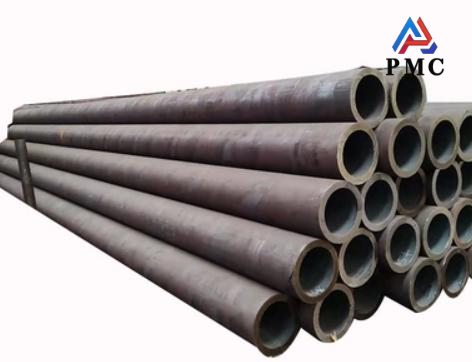
Well Casing Pipe: Characteristics, Functions and Applications
In the field of oil and gas extraction, well casing pipe is regarded as the "stabilizing force" that maintains the normal operation of oil wells. Each oil well requires multiple layers of casing pipe depending on the drilling depth and geological conditions. Well casing pipe is like the solid skeleton of the oil well, providing indispensable support for the entire mining operation. During the drilling process, it can prevent the well wall from collapsing due to various complex geological forces and ensure smooth drilling of the drill bit. After well completion, the well casing pipe continues to function to ensure stable operation of the well during long-term production.
Unique features of well casing pipe
1. High strength and high toughness
Well casing pipe has to serve in a complex underground environment and withstand comprehensive stresses such as tension, compression, bending and torsion. This requires that the well casing pipe must have high strength and high toughness. Casing pipes of different steel grades, such as J55 and K55, are designed to adapt to different stress environments and ensure that no failures such as fracture and deformation occur under complex working conditions.
2. Good wear and corrosion resistance
During long-term use, the well casing pipe will come into contact with drilling fluid, formation rock, produced oil and gas and other media, which requires it to have good wear resistance and corrosion resistance. By adding alloy elements such as chromium and molybdenum to steel, or using surface coating treatment, the corrosion resistance and wear resistance of the casing pipe can be effectively improved, extending its service life in harsh environments.
3. Anti-collapse performance
In areas with complex geological conditions, such as salt rock formations and mudstone formations, the formations will produce large external extrusion pressures, which requires the well casing pipe to have excellent anti-collapse performance. Once the casing pipe’s anti-collapse performance is insufficient, deformations such as shrinkage and flattening may occur, resulting in the inability of the oil well to produce normally.

Functions of different types of well casing pipe
1. As the first layer of casing pipe in the wellbore structure close to the open hole wall, the guide pipe plays a vital role in the initial stage of drilling. It is mainly used to protect the surface layer near the wellhead to prevent it from being washed away by mud during drilling.
2. The surface casing pipe is the outermost casing in the casing process of oil and gas wells. It is mainly used to reinforce the well wall of the upper loose rock layer to prevent these soft formations from collapsing and affecting the drilling process.
3. Technical casing pipe is the key to dealing with complex situations during drilling. When encountering complex formations such as high-pressure layers, leakage layers or collapse layers, technical casing pipe can isolate these difficult-to-control formations.
4. The oil layer casing pipe, also known as the production casing pipe, is the last layer of casing pipe in the casing process of oil and gas wells, which runs from the wellhead to below the oil and gas layer. Its main function is to isolate the oil, gas and water layers and prevent the layers from interfering with each other.
Applications of Well Casing Pipes
(1)Domestic Water Supply Wells
In residential, commercial, and industrial settings, steel well casing pipes are commonly used for constructing water supply wells. Their ability to withstand varying water quality conditions and their long-term reliability make them a preferred choice for delivering clean and safe water to communities.
(2)Agricultural Irrigation Wells
Agricultural operations rely on water wells for irrigation purposes. Steel well casing pipes are employed in these applications due to their strength, durability, and resistance to soil and water contaminants, ensuring consistent water supply for crop irrigation.
(3)Environmental Monitoring Wells
For environmental monitoring and remediation projects, steel well casing pipes provide secure installations for groundwater sampling and monitoring equipment. Their corrosion resistance and structural integrity make them suitable for long-term use in environmental applications.
Considerations for Selection and Installation
(1)Material Specifications
When selecting steel well casing pipes, it is essential to consider the specific material specifications, including the grade of steel, protective coatings, and dimensional requirements. These specifications should align with the anticipated operating conditions and the properties of the surrounding geological formations.
(2)Installation Techniques
Proper installation techniques are critical for maximizing the performance and service life of steel well casing pipes. This includes methods for ensuring vertical alignment, effective grouting, and proper sealing to prevent ingress of contaminants and maintain well integrity.
(3)Regulatory Compliance
Compliance with local, state, and federal regulations pertaining to well construction and materials is paramount. Stakeholders should ensure that the selected steel well casing pipes meet the necessary standards and certifications for use in water well applications.
Read more: Applications of Well Casing Pipes


